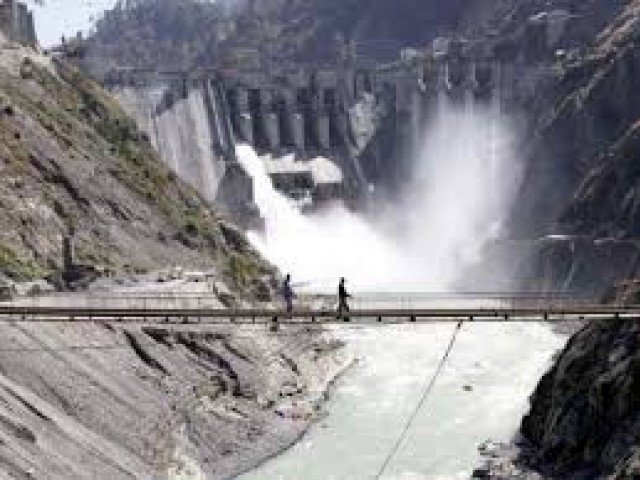Consumers to cough up Rs49bn a year over two decades to pay off debts
ISLAMABAD: Neelum-Jhelum Hydropower Company – a subsidiary of the Water and Power Development Authority (Wapda) – has filed a tariff petition before the National Electric Power Regulatory Authority (Nepra) asking for Rs13.24 per unit reference tariff (about 12.62 US cents per unit) over the 50-year lifespan of the project.
Of this, the reference tariff is Rs14.59 for the first 20 years, which will then drop to Rs5.10 for the remaining 30 years.
The total cost of the project has been reported at Rs506.579bn or $4.825bn. The project is currently in completion phase with two of its four units of 242MW each having gone through the testing stage.
The regulator has been told that the construction contract of the project was awarded at a cost of Rs90.9bn in 2007 and its completion date was targeted October 2015, reports Dawn.
The non-construction costs, on the other hand, have been claimed at Rs220.32bn, including a massive Rs94.3bn exchange rate loss and another Rs73bn cost escalations and other indexations.
Another major cost of Rs87.7bn has been claimed as interest during construction (IDC) or borrowing cost. Interestingly, the land acquisition and leasing cost turned out to be paltry Rs2bn while Rs5.2bn were spent on corporate social responsibility (CSR) and mitigation measures.
The petitioner has claimed debt-equity ratio of 79:21, as per Nepra’s notice of hearing issued on Thursday.
The debt is based on foreign relent loans at an interest rate of 12-15pc, cash development loans by the government at 10.65 to 11.79pc interest and local commercial loans on six-month Karachi Interbank Offered Rate plus 113 basis points. The debt repayment is spread over 20 years on a semi-annual basis, with the annual tranche of Rs47
The regulator is now seeking comments for the public hearing next month to deliberate if 60.7pc plant capacity factor of the project with net annual energy supply of 5126-gigawatt-hour (GWh) is justified and if the cost estimates were reasonable.
The regulator will also examine if the impact of Kishanganga project in occupied Kashmir had been accounted for on the annual energy of the project and what was the total amount of Neelum- Jhelum Surcharge collected from consumers, and what will be its impact on the tariff. The petitioner has claimed to have received Rs51bn on account of this surcharge.
The petitioner also has to justify before the regulator the construction period of 96 months and Return on Equity (ROE) and Return on Equity during Construction (ROEDC) computed at 17pc and the tariff period of 50 years.
The regulator has raised questions regarding its construction on build, own, operate and transfer (BOOT) model and why it should allow equity redemption and treat withholding tax on dividend as a pass-through cost in the tariff.
Questions have also been raised over cost escalation, including engineering supervision Rs19bn, project management Rs5.9bn and exchange losses of Rs94.3bn.
Nepra also has to examine if the project’s tariff should still be allowed on “take or pay basis” as requested by the company, considering the high project cost, and the uncertainty about the future generation due to diversion of water at Kishanganga and also keeping in view the fact that the project has already been completed.
Early last month, the Executive Committee of the National Economic Council (Ecnec) had approved the fourth revised PC-1 of the project at an updated cost of Rs506.808bn.
The cost estimates for the project have been jacked up four times since 2002 when the plant was projected to be completed at a cost of Rs84.5bn.
The estimated cost was revised to Rs277.5bn in 2012 to accommodate changes in design and geography caused by the 2005 earthquake.
This was followed by approval of a revised cost of Rs404bn in 2015.




